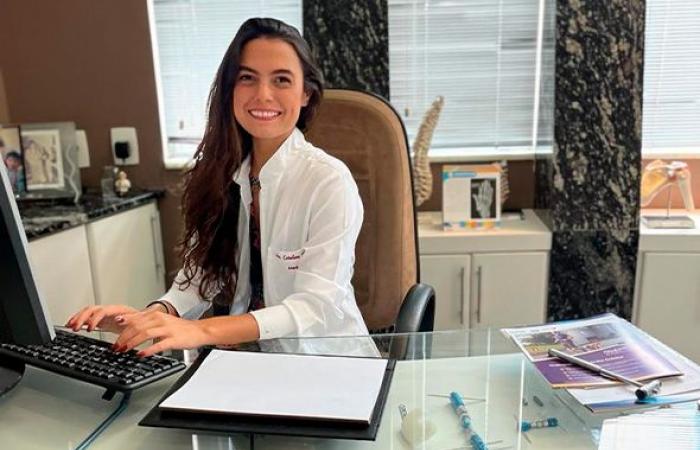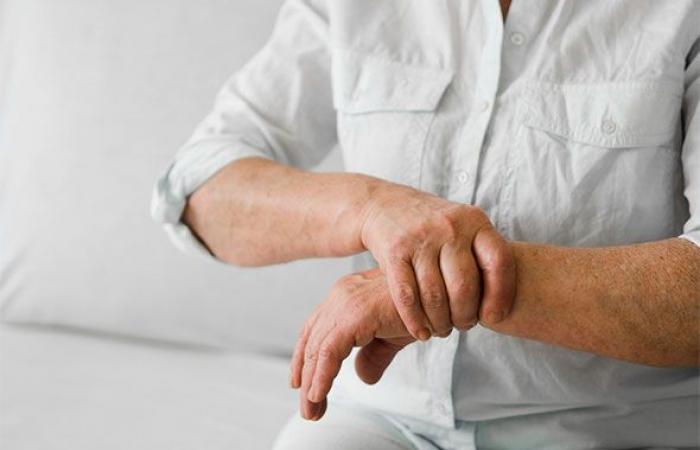After having a fever, nausea, headaches and spots on the body, a symptom tends to remain for days, weeks and even months. Joint and muscle pain caused by chikungunya is reported by several patients for periods that can last longer depending on the case. To understand a little more about the reasons that lead to this and what can be done, we spoke to Dr. Carolina Lais Ladeira Estefani (CRM 70810 / RQE 60050), rheumatologist who serves patients from Sete Lagoas and the region in Paiva Youth Clinic.
Dr. Carolina Estefani, rheumatologist. Photo: personal collection.
Data from the Arbovirus Case Monitoring Panel of the State Department of Health of Minas Gerais indicate that 65,313 cases of chikungunya were confirmed in the state in 2024 until April 22, with 48 deaths. In Sete Lagoas alone, 10,537 cases and 12 deaths were confirmed.
Not surprisingly, the number of reports of persistent pain after weeks or months is also significant. And why does chikungunya cause such pain?
Dr. Carolina Estefani explains that “chikungunya is a viral disease transmitted by the Aedes aegypti mosquito that can affect the joints. In the acute phase, an intense and rapid proliferation occurs, leading to the spread of the virus, coinciding with the appearance of fever, rash [lesões avermelhadas na pele]intense arthralgia [dores intensas nas articulações] and leukopenia [diminuição de glóbulos brancos no sangue]“.
The acute phase of the disease lasts from 7 to 14 days. Dr Carolina reports that after this the patient can progress to the subacute phase (15 days The 3 months) and for the chronic phase (more than 3 months). According to the specialist, if joint symptoms persist in the subacute phase, it is important for the patient to undergo a specialized assessment to receive appropriate treatment depending on the phase they are in.
A very common question that arises among patients is whether they can do physical exercise even though they are in pain. Regarding this, Dr. Carolina Estefani indicates that:
“Active exercises can be carried out with light intensity to maintain joint functions, with caution so as not to exacerbate inflammatory symptoms. It is important to indicate relative rest and avoid movements that trigger pain. Stretching exercises help to maintain the flexibility of muscles and tendons. Aerobic exercises are indicated for improving general physical conditioning and reducing fatigue. Manual therapies, such as tissue mobilization and joint mobilization techniques, are indicated for relaxation and reducing muscle tension and tension. to restore range of motion. Aquatic physiotherapy can offer pain relief, reduce edema, improve joint mobility and functional abilities in different phases of chikungunya”.
Patients affected by chikungunya often report recurring joint pain for a certain period. Illustrative photo: Freepik.
The doctor also reveals that around 5% of chikungunya cases that progress to the chronic phase (more than 3 months from the onset of symptoms) can evolve into persistent or recurrent joint inflammation.
“Generally, pain can affect several joints on both sides of the body, appear and disappear from time to time and be related or not to stiffness when getting out of bed in the morning. There is the possibility of developing inflammatory joint disease, for example, arthritis rheumatoid and spondyloarthritis, possibly the infection being a trigger for the development of the autoimmune disease”he adds.
In view of this, it is extremely important to consult medical specialists such as rheumatologists to continue the treatment and, above all, not to be guided by the “magic formulas” of home treatments or similar:
“Evaluation with a specialist doctor who has an RQE (specialist qualification registration), a highly trained professional, is important to confirm the diagnosis. In addition, differential diagnosis is also made with other inflammatory joint diseases to prescribe the best treatment based on scientific evidence. Homemade formulas can cause some unwanted adverse effects and have consequences for the patient’s health”warns Dr. Carolina Estefani.
To consult with Dr. Carolina Estefani and also schedule consultations and exams in different specialties, you can look for Paiva Youth Clinic. The health center is a reference for Sete Lagoas and the region and is located in Rua Teófilo Otoni, nº 420, Centro de Sete Lagoas. Schedule your consultation and exams in person and also through WhatsApp (31) 9 7165-0584 and telephone (31) 2106-5520.
Vinícius Oliveira






